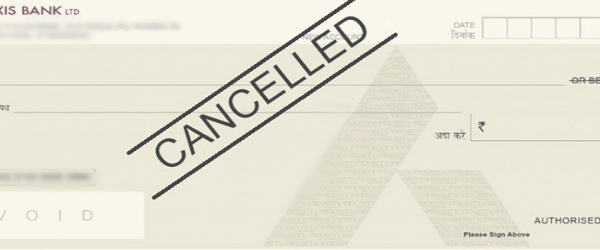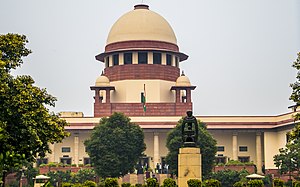
Is Bail the rule & jail an exception ?
Under criminal justice system, bail is the rule and jail is an exception, however when it comes to bail not only judiciary but also bar and individuals are quite divided. Jails are overcrowded and bails get denied in wholesale every day.
Bail, in simple terms, means that a person accused of an offence can seek his release from custody if he fulfils certain conditions laid down. This article discusses the different kinds of bail under the Code of Criminal Procedure, 1973.
Section 436 and Section 437, talk about bail to an accused person. Under Section 436, which is applicable for bailable offence, it states that it is the right of the accused to get bail and the Court, or the investigating officer cannot refuse bail.
However, under Section 437 bail can be granted at the discretion of the Court, but the discretion to grant bail under Section 437 "cannot be arbitrary, fanciful or vague" 2. In other words, the discretion to grant bail should always be exercised by courts judicially and not according to "whim, caprice or fancy".
Section 437 further provides that a person accused of a non-bailable offence cannot be granted bail if:
(i) There are reasonable grounds to believe that he has committed an offence punishable with the death penalty or life imprisonment.
(ii) That the accused has committed a cognizable offence and he had been previously convicted of an offence punishable with death, imprisonment for life, or imprisonment of seven years or more or if the accused has been convicted on two or more instances of a cognizable and non-bailable offence.
The proviso to Section 437 further provides that the above conditions will not apply if the accused person is under the age of sixteen years or is a woman or is sick or infirm or if the court is satisfied that it is just and proper to release the person on bail.
Section 439 of the Code provides for grant of bail by the High Court or the Court of Sessions.
The Code has provision for different kinds of bails, in brief which are as follows:-
(a) Regular bail
Under Section 437 or Section 439, regular bails are granted, which means that in case of arrest of the person in non-bailable section, he shall be released on bail till the conclusion of the trial.
(b) Anticipatory Bail
Section 438 of the Code provides that if a person is apprehending arrest in case of a non-bailable offence, the person may approach the High Court or a Court of Sessions seeking a direction that in the event of his arrest, he shall be released on bail.
(c) Default Bail
Section 167 of the Code provides that when a person is arrested and the investigation cannot be completed within a period of 24 hours, the arrested person shall be produced before a Magistrate who has the power to authorize his detention for a period not exceeding 15 days.
Normally, this period of detention is further extended for 15 days by the Magistrate to enable the police or the investigating agency to complete the investigation.
However, Section 167(2) further provides that the period of detention cannot be extended for more than 90 days in case of offences punishable with death, imprisonment with life or imprisonment of not less than 10 years. In case of other offences, this period is 60 days
The right to a default bail is an absolute right and not at the discretion of any Court. Thus, if the accused is able to demonstrate that 60 or 90 days as the case may be, have elapsed since his arrest and no chargesheet or complaint has been filed, the Court is bound to grant him default bail.
(d) Interim bail
The bail granted for a short period of time is commonly known as interim bail. This bail is generally granted in cases where the accused person is otherwise not entitled for a regular bail, however, there exist circumstances (i.e., medical or humanitarian) because of which the Court feels that the person can be released for a short period of time (say 4 weeks or 8 weeks depending on the circumstances).
(e) Medical bail
The bail granted to a person purely on medical grounds is known as medical bail. This is a type of regular bail but granted purely on medical considerations. While granting medical bail, the Courts generally do not go into the merits of the case and whether the various criteria for grant of bail are satisfied or not.
(f) Bail under Section 436A of the Code
Section 436A of the Code states a person accused of any offence (other than an offence which is punishable with death) has been in custody of a one-half of the maximum period of imprisonment which can be imposed on him for such offence, such person can be released on bail.
Bail is an important right available to an accused person to protect his fundamental right guaranteed under Article 21 of the Constitution of India. However, a lot needs to be done in this direction keeping in view the slow pace of investigation and trails of the case and lacks of means to a vast majority of the population to get an affordable representation in the court. The another are of challenge in front of this evolving law is new age offences like money laundering, bribe etc
Your free access to Supreme Law News has expired
For further details contact:
Dr. Ajay Kummar Pandey
( LLM, MBA, (UK), PhD, AIMA, AFAI, PHD Chamber, ICTC, PCI, FCC, DFC, PPL, MNP, BNI, ICJ (UK), WP, (UK), MLE, Harvard Square, London, CT, Blair Singer Institute, (USA), Dip. in International Crime, Leiden University, the Netherlands )
Advocate & Consultant Supreme Court of India, High Courts & Tribunals.
Delhi, Mumbai & Dubai
Tel: M- 91- 9818320572. Email: editor.kumar@gmail.com
Website:
www.supremelawnews.com
www.ajaykr.com, www.4Csupremelawint.com
Facebook: /4Clawfirm, /legalajay Linkedin: /ajaykumarpandey1 Twitter: /editorkumar / YouTube: c/4cSupremeLaw Insta: /editor.kumarg
Telegram Channel
Whatsup Channel











